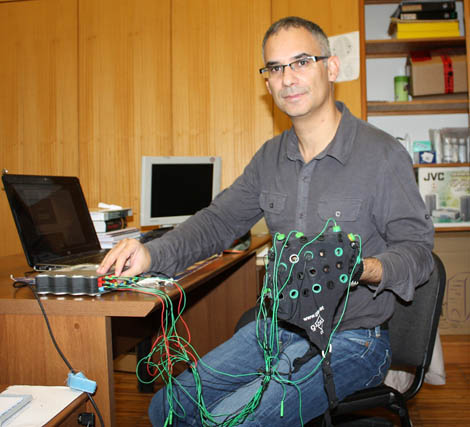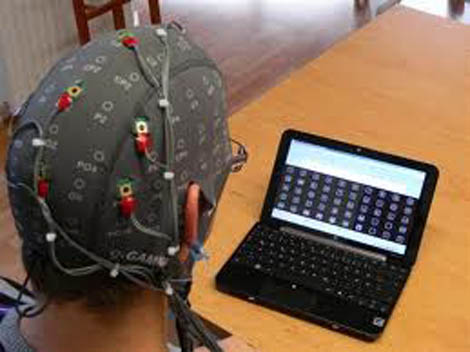 The researcher Gabriel Pires, from the Institute of Systems and Robotics (ISR) of the University of Coimbra (UC), created a brain-computer interface for people with severe motor limitations, namely patients with amyotrophic lateral sclerosis (ALS), quadriplegic people and people with paralysis brain, already clinically validated.
The researcher Gabriel Pires, from the Institute of Systems and Robotics (ISR) of the University of Coimbra (UC), created a brain-computer interface for people with severe motor limitations, namely patients with amyotrophic lateral sclerosis (ALS), quadriplegic people and people with paralysis brain, already clinically validated.
By allowing communication based only on brain waves and visual stimuli, the system developed by the researcher from Coimbra admits restoring communication, increasing mobility and the degree of independence of patients: «it is a very powerful assistance tool that, when it enters the market , will have a strong social impact because it will allow people with very severe motor disabilities to gain more autonomy. For example, with the brain-computer interface, they will be able to carry out everyday tasks such as chatting on Skype, driving a wheelchair, turning on lights, triggering alarms via telephone, turning on the television, etc.», emphasizes Gabriel Pires.
The interface, which has just won second prize in the Fraunhofer Portugal Challenge competition, was developed over the last five years, and resulted in a Doctoral Thesis, supervised by professors Urbano Nunes, from the Faculty of Science and Technology (FCTUC), and Miguel Castelo Branco, from IBILI – Faculty of Medicine (FMUC).
The system consists of a set of signal processing and automatic learning algorithms that, after collecting brain signals by the non-invasive method of electroencephalography (EEG), decodes brain patterns and selects letters sequentially, allowing for the writing of sentences.

They are algorithms “that adjust to people's neuronal patterns, for example, the system can understand whether the user, at the moment, wants to perform a given task or not. On the other hand, with a simple close of an eye, the user turns off the interface. To turn it on again, repeat the movement», illustrates the professor at the Polytechnic Institute of Tomar.
The Fraunhofer Portugal Challenge is a competition of ideas, organized by the Fraunhofer AICOS research centre, to distinguish students and researchers from Portuguese universities who present innovative ideas of “practical utility”, with market potential.
Funded by the Foundation for Science and Technology (FCT), the interface was clinically validated in a group of patients with amyotrophic lateral sclerosis, followed by the Neurology Service of the University and Hospital Center of Coimbra (HUC-CHUC), in patients of the Paralysis Center Cerebral de Coimbra (APCC) in a quadriplegic man and in a Duchenne patient (DMD – Duchenne muscular dystrophy), with very positive results.
Author: Cristina Pinto – Press Office of the University of Coimbra
Science in the Regional Press – Ciência Viva


















Comments